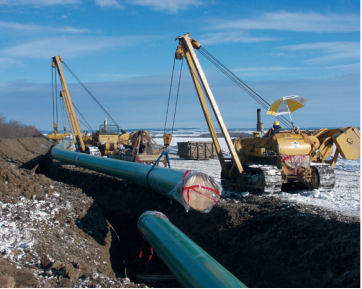Congress may bypass Obama on Keystone XL pipeline


Political one-upmanship is on the rise in Washington DC. Congressional Republicans are planning an attempt to circumvent President Obama to hasten the approval of TransCanada’s controversial Keystone XL pipeline.
Republicans last month used Keystone XL as leverage to pass economic stimulus, which President Obama signed into law. Obama is now compelled to make a decision on the pipeline, which crosses international boundaries, by February 21. The State Department was expected to spend several years deliberating its approval.
The stage is set for a showdown. The Administration has questioned whether Congress's 60-day deadline could run afoul of environmental laws, and the GOP is drafting legislation that would exert Congress’s authority to regulate commerce with foreign nations if the White House denies TransCanada a permit.
The project’s approval is a political flashpoint in Washington, with the Republican Party favoring its approval, and the Democratic Party standing largely against it. Republican Presidential candidates have rallied around the cause, and influential campaign supporters have a substantial financial stake in the pipeline.
Keystone XL would transport up to 900,000 barrels of crude oil per day from Canada’s Athabasca Oil Sands into the United States to refineries and the Gulf Coast. Potential environmental dangers and massive greenhouse gas emissions have made pipeline the bête noire of some climate scientists and environmentalists.
NASA scientist James Hansen said that tapping the oil sands would be “essentially game over” for achieving a stable climate. The pipeline’s proposed paths could pass through sensitive waterways and wetlands. Proponents maintain that the climate risks are being overstated, and point to the abundance of pipelines that are already in existence.
Advocates contend that the pipeline means as much as 20,000 jobs, lower gas prices, and would secure the U.S. a steady supply of oil from a friendly neighbor. Oil from the pipeline will be sold on the international market. The US’s largest export in 2011 was fuel.
Related on SmartPlanet:
This post was originally published on Smartplanet.com